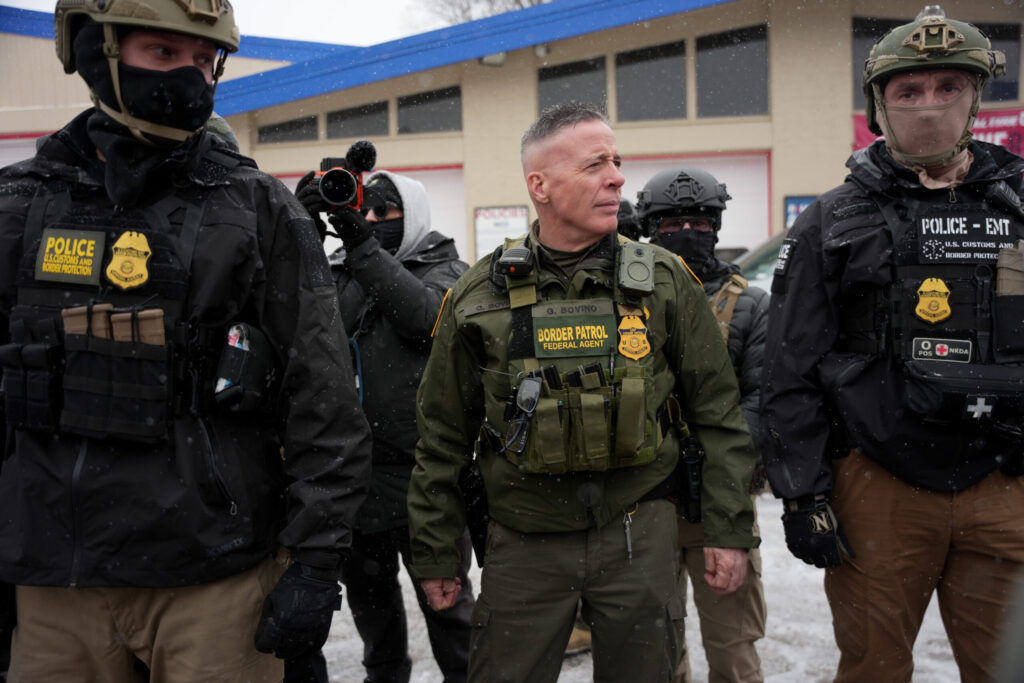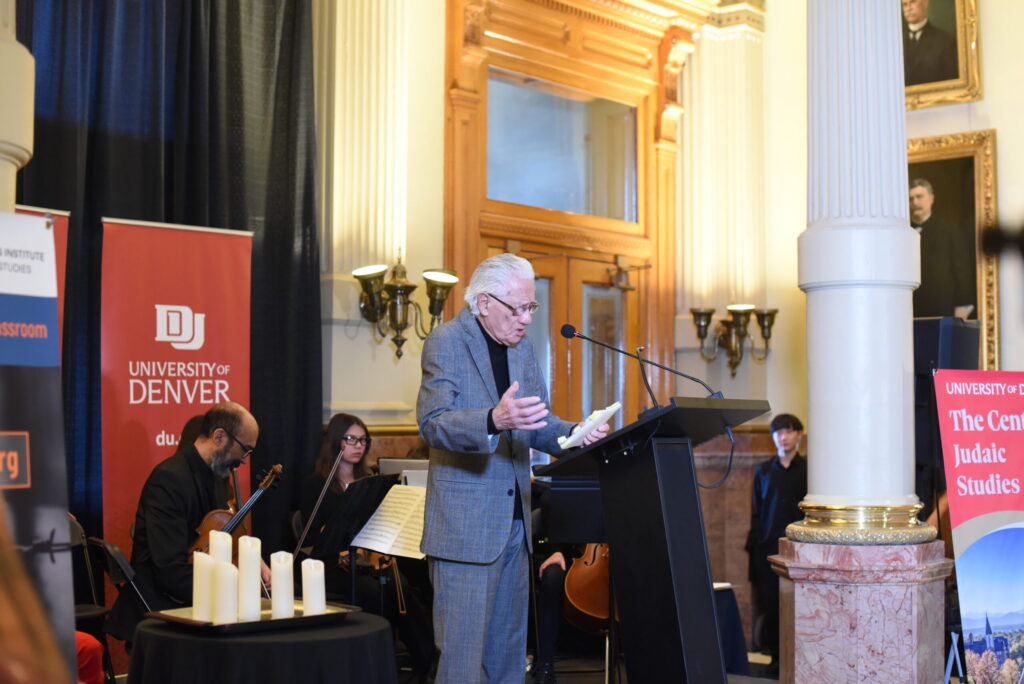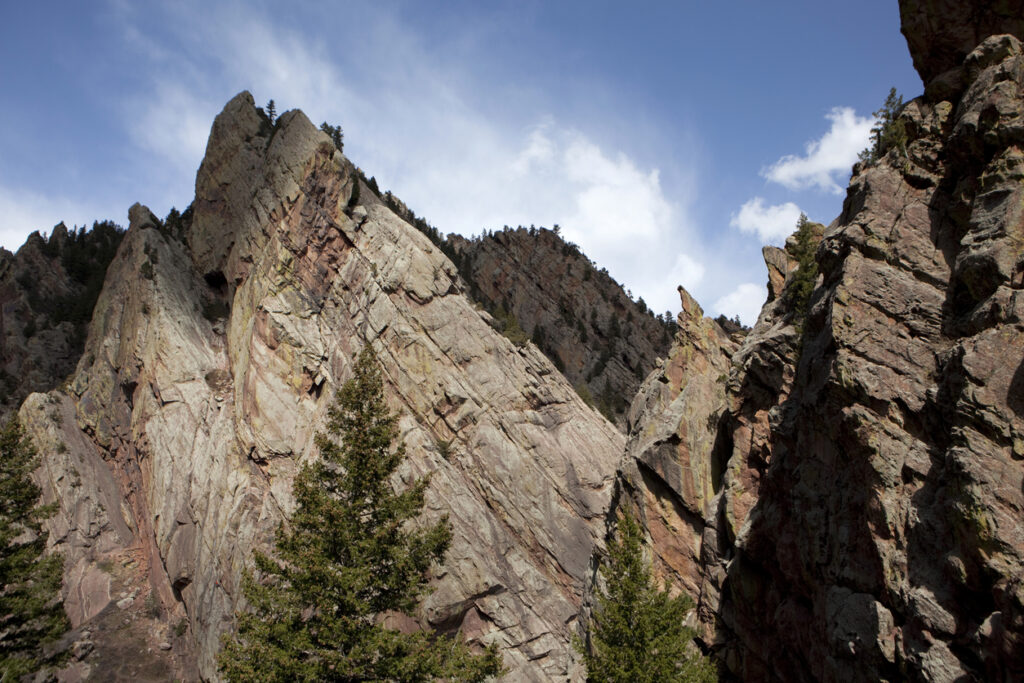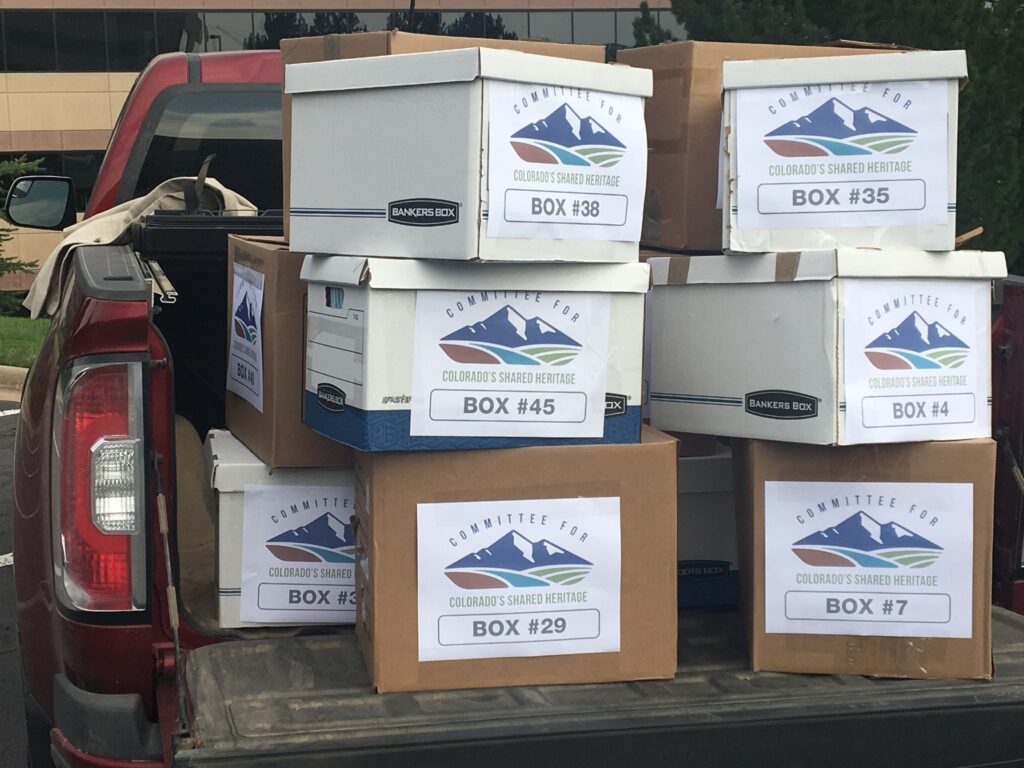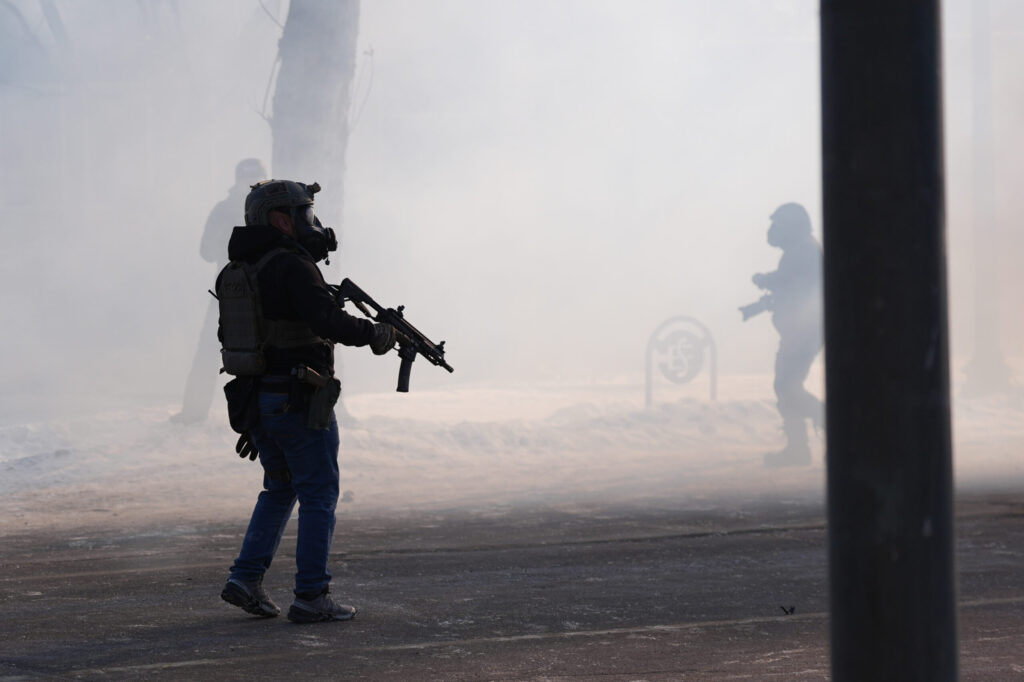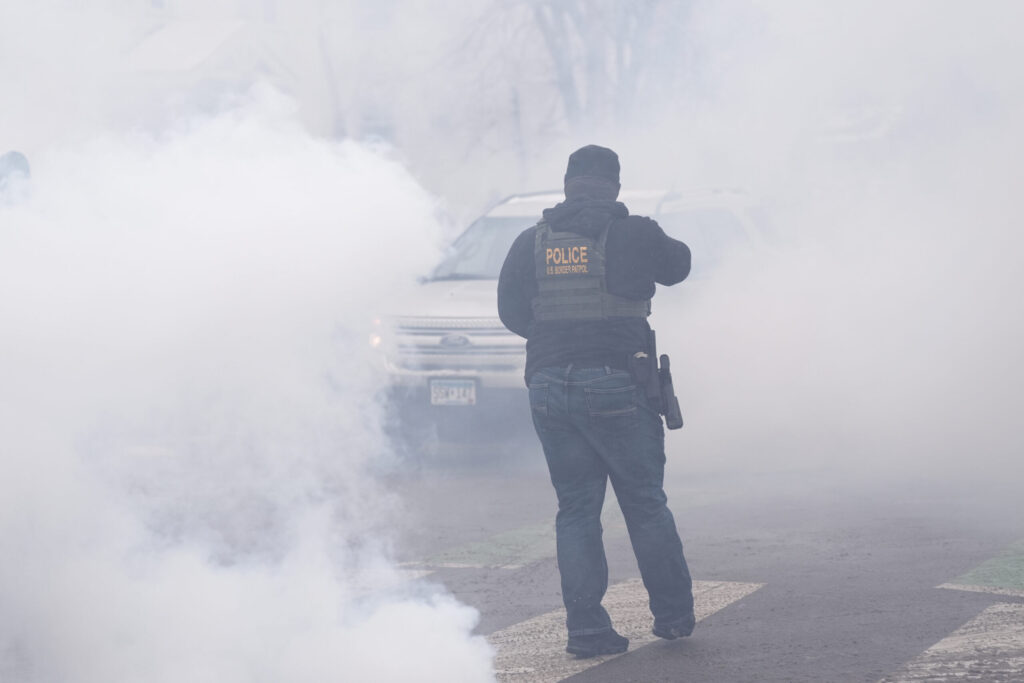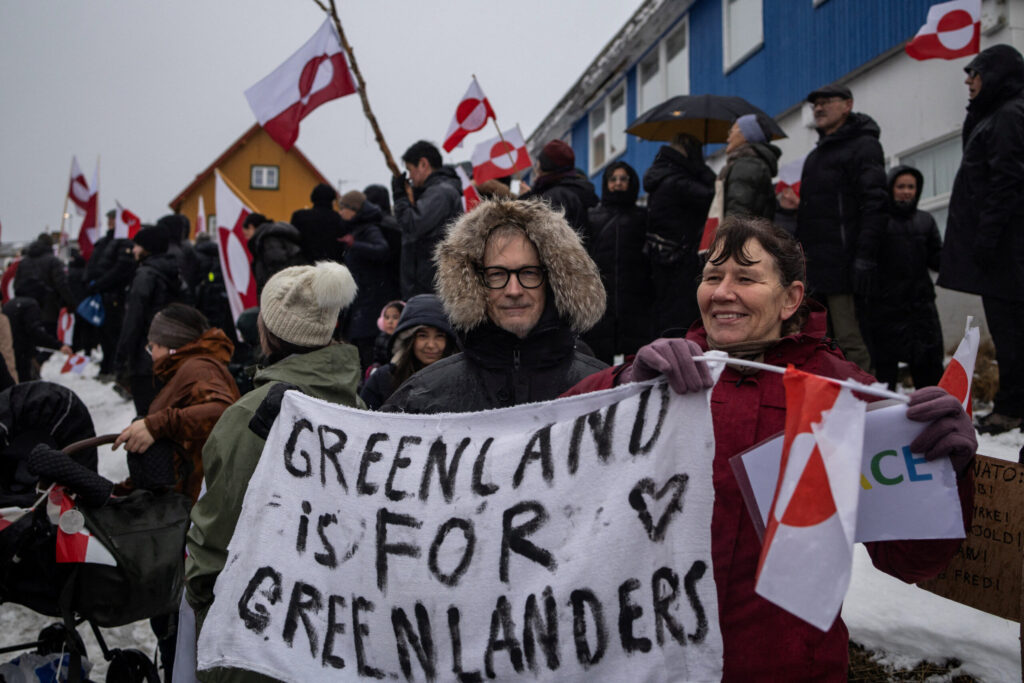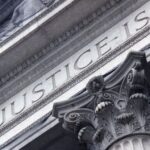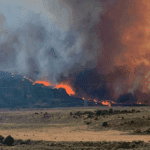The National Guard operating in Denver? Unlikely, experts say
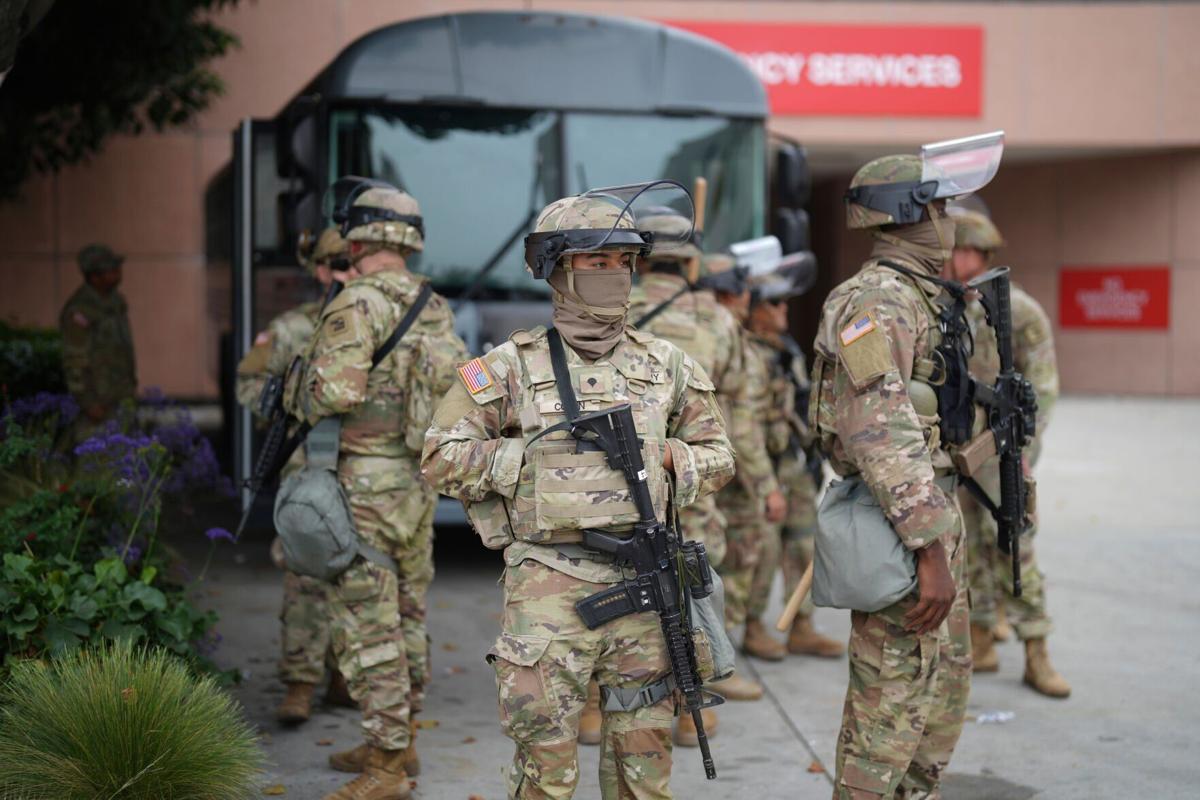
Eric Thayer - FR171986 AP
President Donald Trump recently inked an executive order creating a series of specialized military units within the National Guard that, under the direction of Secretary of Defense Pete Hegseth, would be “specifically trained and equipped to deal with public disorder issues.”
Is such a deployment of the National Guard a possibility in Denver, where Mayor Mike Johnston and the Trump administration have repeatedly locked horns over the city’s policies that limit its cooperation with federal immigration authorities?
No. At least not for now, experts said.
A spokesperson for the Colorado National Guard Joint Force Headquarters told The Denver Gazette that, at this time, there are no orders or pending orders for such a deployment related to the president’s directive, a fact also confirmed by the office of Gov. Jared Polis.
There are more than 5,500 members of the Colorado National Guard, comprising both the Army and the Air National Guard, with the majority assigned to units along the Front Range.
Citing recent troop deployments to Los Angeles and Washington, D.C., some critics have said Trump’s directive will increase the military’s role in local law enforcement despite legal limitations, particularly in “sanctuary cities.”
Others, including Washington, D.C. Mayor Muriel Bowser and the National Police Association, welcome that possibility. On Tuesday, Bowser issued an order extending the city’s cooperation with federal authorities engaged in local law enforcement, according to the Associated Press.
The Trump executive order is a positive step toward rectifying a decrease in “boots-on-the-ground law enforcement” over the past decade, National Police Association spokesperson Betsy Brantner Smith told technology publication Smart Cities Dive.
“The order declares that safe communities depend on a tough and well-equipped police force,” she told the publication. “That’s something that the president has said with some frequency — let cops be cops.”
Legal experts, such as University of Colorado Associate Professor of Law Jonathon Booth, said that while the president can federalize troops in support of civil authority in some instances, specific guardrails may limit the power that troops have.
The legal situation in Washington, D.C., is unique in that it is not a state, but rather a federal enclave with limited home rule as granted by Congress in the Home Rule Act of 1973, Booth told The Denver Gazette.
The federal government has significantly more power in Washington, D.C. than in states like Colorado, he said.
Booth said the president could attempt to declare an emergency and federalize the Colorado National Guard, but doing so would presumably be against the wishes of the governor.
The president has “absolutely no legal authority” to federalize the Denver police, Booth said, adding, “That is power unique to the D.C. police.”
The Trump administration has not broached the idea of federalizing the local police. Instead, Trump talked about directing federal law enforcement intervention to combat crime in Chicago and Baltimore, for example.
Polis said he would not support activating the Colorado National Guard to fight crime, as troops are also obligated to the state for missions, such as fighting wildfires and dealing with other natural disasters.
“Colorado’s National Guard members play an important role in protecting our state during natural disasters and emergencies at home and abroad, and I would not support federal overreach to activate the National Guard outside of regular order,” Polis said in a statement to The Denver Gazette. “I signed an executive order earlier this month authorizing the use of the National Guard in response to the fires burning in Western Colorado to support response efforts and as requested by the Colorado Department of Public Safety.”
Polis added: “My recent executive order streamlined the process for authorizing the National Guard for the multiple fires across the state, and any effort to pull members from these or future fire missions would endanger Coloradans and our communities.”
During a Aug. 27 Reddit “Ask Me Anything” session, Johnston called Trump’s “militarization” of the nation’s cities “unprecedented” and “dangerous.” He promised to take the administration to court “on Day One” should the White House send federal troops to Denver.
“Any first-year law student in America could tell you that deploying the U.S. military on the streets of American cities in times of peace to enforce domestic law is clearly illegal,” the mayor posted. “Denver does not need any help from the National Guard, as we are seeing the largest decrease in violent crime of any top 50 city in the country.”
Recently, the Trump administration has suggested that federal intervention is warranted to combat crime in Chicago, pointing to gun violence over the Labor Day weekend, where 50 people were injured and eight people lost their lives.
“Chicago is the worst and most dangerous city in the world, by far,” President Trump wrote on his social media platform. “(Illinois Gov.) Pritzker needs help badly; he just doesn’t know it yet. I will solve the crime problem fast, just like I did in DC. Chicago will be safe again, and soon.”
Chicago Mayor Brandon Johnston signed an executive order on Aug. 30 aimed at limiting the power of federal law enforcement officers and National Guard troops and directing the city’s law department to use “every legal mechanism” to stop the president’s plan.
The Denver Gazette reached out to Johnston, asking if a similar executive order was in the works in Denver, but his office declined to comment.
“Bringing in the National Guard to occupy our neighborhoods is never the right way to address challenges — it only escalates tensions instead of solving problems,” Johnston said at his Reddit session.
After the Trump administration deployed thousands of National Guard soldiers and U.S. Marines to Los Angeles following protests over immigration raids, California Gov. Gavin Newsom, a Democrat, sued, arguing the president’s actions violated federal law.
On Sept. 2, U.S. District Court Judge Charles Breyer ruled in a 52-page opinion that Trump’s decision to deploy troops in Los Angeles was illegal.
“Congress spoke clearly in 1878 when it passed the Posse Comitatus Act, prohibiting the use of the U.S. military to execute domestic law,” Breyer wrote. “Nearly 140 years later, Defendants — President Trump, Secretary of Defense Hegseth, and the Department of Defense — deployed the National Guard and Marines to Los Angeles, ostensibly to quell a rebellion and ensure that federal immigration law was enforced. There were indeed protests in Los Angeles, and some individuals engaged in violence. Yet there was no rebellion, nor was civilian law enforcement unable to respond to the protests and enforce the law.”
“When federalized, the National Guard is forbidden by the Posse Comitatus Act of 1878 from engaging in law enforcement,” Booth told The Denver Gazette. “That is why when the Guard was deployed to Los Angeles, the White House claimed they were there simply to provide security to ICE agents.”
In the context of a “crime emergency,” it is hard to know what National Guard members could be doing other than engaging in law enforcement, the professor said.
“The most likely answer, in my view, is to stand around with guns in the hope of deterring crime,” he said.
In court documents, the Trump administration argued that California had no right to sue, as the Posse Comitatis Act is a criminal statute and not a civil one the act did not prevent the president from ordering troops to protect federal employees and property — and that the prescient was in his legal authority to “execute the laws of the United States” because local forces were unable to enforce federal immigration laws.
Additionally, the administration argued that the Posse Comitatus Act harbors an “exception” beyond the framework established by case law. Under this “constitutional exception,” the administration argued, the president has inherent constitutional authority to protect the property, personnel, and functions of the federal government.
The federal court’s ruling against the Trump administration’s use of the National Guard troops in California does not automatically apply to other states.
Republican strategists contend Democrats are in a bind over how to react to Trump’s directive based on high crime rates in Democrat-led cities. FBI data show that 19 of the 20 cities with the highest murder rates and at least 100,000 residents in 2024 had Democratic mayors.
“The perception in America is that these cities are lost, and that the mayors, and the city council, and the leadership in these cities lack the will to do what’s necessary to fix them,” said Brian Seitchick, a national Republican strategist.
Denver, Washington, D.C. and Baltimore are among the Top 10 big cities for violent crime per 100,000 people, according to The Hill, the D.C.-based publication, which cited FBI data on murder, rape, robbery and aggravated assault from 2024.
Baltimore is No. 3 on that list. Denver sits at No. 9. Washington, D.C. is No. 10.
Hegseth told reporters during an Aug. 24 news conference, “We’re really proud to be a part of defending the nation’s capital and ensuring it is safe and beautiful, and working with law enforcement.”
He added that morale among troops is high.
“They love this mission,” Hegseth said. “They’re grateful to be doing it, whether they’re D.C. National Guard or other state National Guards.”
Crime data from D.C.’s Metropolitan Police Department indicate that since the Trump administration took over, the city has seen drops in both property and violent crimes.
Speaking during a news conference last week, Bowser credited the surge of federal authorities with bringing down the level of crime in the city, including an 87% drop in carjackings.
“When carjackings go down, when homicides or robbery go down, neighborhoods feel safer,” she said.
The Associated Press and Washington Examiner reporters Mabinty Quarshie and Naomi Lim contributed to this story.


